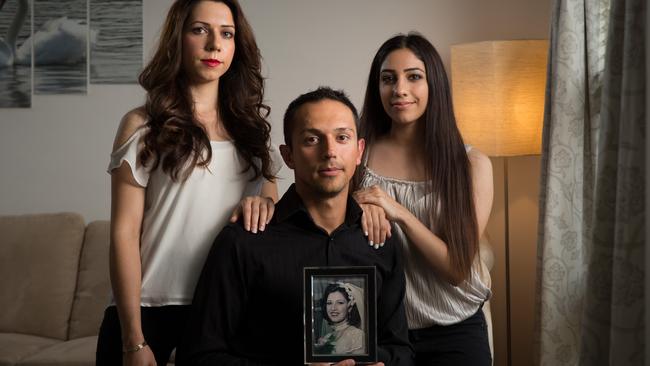Domestic violence: don’t put up with disrespect
Much of the conversation around preventing domestic violence has focused on teaching young boys to grow into respectful adults. But we’ve also got to teach our girls to stop it at the start.

Rendezview
Don't miss out on the headlines from Rendezview. Followed categories will be added to My News.
You may have been there — I certainly have.
It might have been a sexist joke or a slap on the bum. It could have been a partner demanding your mobile phone password or refusing to let you leave the house dressed the way you want.
Thankfully I was instilled from a young age with the self-esteem and confidence to call out this kind of behaviour.
But there are women of all ages who feel, for many reasons, unable to stand up to it and this leaves them vulnerable to an escalating threat.
This national conversation we are having about domestic abuse has taught us that violence against women comes at the end of a spectrum that actually starts with this kind of disrespect.
Data released this week in a discussion paper prepared by the South Australian State Government showed more than two-thirds of victims of domestic violence assaults are women and girls. More than half of attacks on women are committed by an intimate partner or ex-partner.
Much of the conversation around preventing this damage has focused on improving the attitudes of men towards women, particularly by teaching young boys to grow into respectful adults.
But there’s another approach that would help protect more women, regardless of men’s behaviour — we’ve got to teach our girls to stop it at the start.
Every little thing that a volatile partner gets away with only emboldens them to tighten their grip.
Our girls need the confidence to challenge this behaviour when it first rears its head in a relationship, before they are trapped in a pattern that is much more difficult to break.
This was highlighted through the coronial inquest into the death of Adelaide mother Zahra Abrahimzadeh at the hands of her estranged husband Zialloh.

Each time he went unpunished for breaching an intervention order or escaped the reach of authorities, he became more convinced of his right to control his wife and three children — until that pattern of behaviour resulted in a public and violent end to a woman’s life.
To be clear, I am not blaming the victims of family violence for not being able to stop their abusers. The blame lies squarely with the perpetrator.
But many women and girls are never given the tools or the support they need to successfully challenge disrespectful or violent behaviour.
In South Australian schools, the YWCA runs the Every Girl program for nine to 14-year-olds which focuses on their rights and sense of belonging. Getting to girls early, among their peers, like this can make an important impression.
In my case, I absorbed these lessons from my parents, who taught me that I had a right to say no, a right to be respected and a right to speak up for myself and others.
It was also made clear that I had an equal responsibility to act respectfully.
This is in stark contrast to some of the women who have died at the hands of their partner or ex-partner in South Australia.
Many are victims of intergenerational abuse — children of women who experienced violence themselves. They have had few role models in their lives, either of strong women or respectful men, and sadly may not believe they deserve any better.
Many mothers remain in abusive relationships for the sake of their children. How can we give those women the confidence to know that leaving that environment can set a better example?
Even armed with the right tools and self-belief, it’s not easy to break free.
It can be awkward and scary to confront someone about their behaviour — especially someone you love, and who is meant to love you. But it is the foul-mouthed, violent and disrespectful brutes who should feel embarrassed and ashamed — not their victims.
So let’s turn the peer pressure back on to the perpetrator and empower our girls to stand up and walk away.
Lauren Novak is Political Reporter for The Advertiser and The Sunday Mail
If you or someone you know is impacted by sexual assault or domestic violence, call 1800RESPECT on 1800 737 732 or visit 1800RESPECT.org.au



